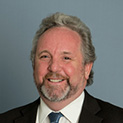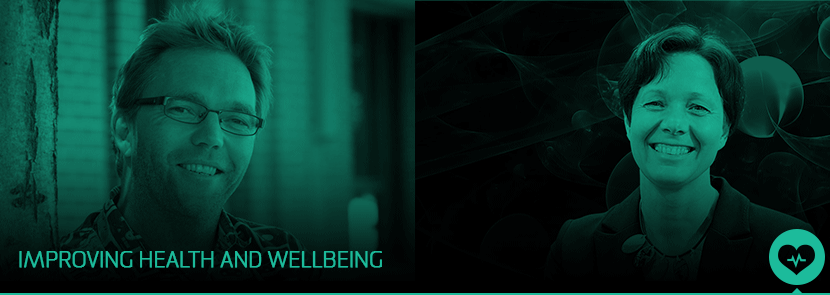Deakin researchers have achieved an outstanding year of discoveries and partnerships that will benefit our communities and the planet into the future.
Deputy Vice-Chancellor (Research) Professor Peter Hodgson has congratulated Deakin University’s researchers in all fields on an exceptional year of growth and success.
Deakin this year achieved a meteoric rise in the Academic Ranking of World Universities (ARWU), rocketing up two tiers and almost 200 places since it first made the ARWU top 500 rankings in 2014.
Released by the Shanghai Ranking Consultancy, the ARWU is driven by research excellence, showcasing the top research universities in the world. The 2016 rankings placed Deakin at number 214, 11th place in Australia.
Deakin is now ranked within the top two per cent of universities worldwide according to every major international rankings organisation, including the ARWU, the QS World University Rankings and the “Times Higher Education” World University Rankings.
[testimonial_text]This is a phenomenal result for Deakin and recognises our research as being at the highest level. Congratulations to all those involved in research at Deakin. This achievement is further evidence that the work we are doing is taking our University into the top tier of universities in the world.[/testimonial_text]
[testimonial_picture name=”Professor Peter Hodgson” details=”Deputy Vice-Chancellor (Research)”]
 [/testimonial_picture]
[/testimonial_picture]Prof Hodgson said Deakin was building research capacity across the University, with two new Research Institutes and four new Strategic Research Centres established this year. Numerous research and industry collaborations have progressed, with several commercial products launched during 2016.
“From robotics, to pioneering research in big data, to developing high tech aerospace-grade carbon fibre composites, our researchers are developing the innovative ideas and manufacturing technologies that will underpin Australia’s 21st century manufacturing sector,” Prof Hodgson said.
“Our health research has resulted in game changing breakthroughs, from cutting-edge surgical and ultrasound technology, to improving the quality of patient care and treatment for conditions such as autism, ADHD, diabetes, cancer and mental health disorders.
“In the theme of sustainability, our world class researchers across diverse disciplines are continuing to make ground in their search for ways to address global issues such as food security, sustainable agriculture and environmental sustainability.
“Our research in areas such as education, humanities and social sciences is also making enormous contributions to create stronger, more connected and better communities.”
Highlights from 2016
Deakin’s reputation for exceptional health research continued to grow during 2016, with researchers making breakthroughs in areas such as obesity causes and prevention, cancer treatments and new therapies for mental health.
Researchers from Deakin’s School of Medicine discovered that our bodies could naturally hold the key to a speedy recovery from flu, and made a breakthrough in prostate cancer treatment that could save lives and improve the quality of life of men undergoing prostate cancer treatment within a decade.
Researchers in the School’s Metabolic Research Unit revealed the possibility of new treatments for cardiovascular disease, with the discovery of a drug that has exercise-like effects on muscle and improves metabolic health.
Robotics technology developed by Deakin, in partnership with Telstra, opened up the possibility of diagnostic ultrasound by remote. The haptics-enabled technology means patients will no longer need to be in the same room as the sonographer and has the potential to dramatically improve access to diagnostics tools for Australians in regional and remote areas.
Researchers enjoyed funding success throughout the year, receiving NHMRC grants for Partnership Projects, allowing them to combat challenges such as childhood obesity, alcohol-related violence, and patient safety, and work towards increasing children’s activity levels in Victorian primary schools.
The NHMRC also awarded Deakin five project grants for research projects ranging from using a tropical fruit to reduce symptoms of bi-polar depression, to developing a new HIV vaccine. Two NHMRC Early Career Fellowships for anti-obesity projects and two grants for ADHD research were also awarded.
A collaborative project aiming to improve consumer choices at supermarkets received a VicHealth Award for Promoting Healthy Eating and suggests an innovative way forward in the national challenge of improving food choices. Numerous other health awards and grants were presented throughout the year.
Marking a new phase in sport research at Deakin, the Centre for Sport Research (CSR) Strategic Research Centre united several research areas under one banner and extended the University’s reputation as one of the nation’s leaders in sport research.
This reputation was cemented when Deakin’s School of Exercise and Nutrition Sciences was named the world’s best in the ARWU ratings of Sports Science Schools and Departments.
The outstanding work of individual researchers was acknowledged throughout the year – Deakin scientists became Members of the Order of Australia, and we gained a new Fellow of the Australian Academy of Health and Medical Sciences and “Young Tall Poppy”.
Deakin’s world-leading research into the development of cutting edge smart technologies continued throughout the year, benefitting industries as diverse as aerospace and health.
Researchers from the Institute for Intelligent Systems Research and Innovation (IISRI) were rewarded for high-tech innovation in automotive design, receiving the 2016 Society of Automotive Engineers (Australasia) Mobility Engineering Excellence Gold Award.
IISRI researchers also developed the Ozbot Raider, a robotic mobile target system to improve accuracy in armed force training.
In healthcare, Deakin achieved a world-first with the development of haptically-enabled robots that will revolutionise surgical procedures. Healthcare also benefitted from a virtual reality app for dementia carers and the use of 3D printers to create prosthetic ears.
The collaborative research partnership between Deakin’s Institute for Frontier Materials (IFM) and HeiQ Australia delivered its first commercial product to market with the release of “HeiQ Real Silk” and IFM researchers developed a game-changing technique for creating liquid plasma, based on a concept as simple as blowing bubbles into a drink through a straw.
Accolades came in many forms – a Royal Society of Chemistry honour for a pre-eminent Deakin chemist, an International Association of Advanced Materials Medal for an electrospinning pioneer and funding for one of only six ARC Industrial Transformation Training Centres.
The Deakin Software and Technology Innovation Lab worked with a range of industries on high-tech solutions, while the new Centre for Cyber Security Research united Deakin’s cyber expertise to combat emerging threats.
Battery research powered up at Deakin with the establishment of the new high-tech Battery Technology Research and Innovation Hub (BatTRI-Hub) set to develop “beyond lithium-ion” battery technologies – and underpin a new Australian industry.
The Future Fibres Hub, an Australian Research Council research and development centre, was launched at Deakin’s Waurn Ponds campus and will lead the development of future fibre-based materials, ranging from short polymer fibres for the medical, textile and industrial sectors, to carbon fibre composites for the automotive industry.
Deakin research is helping farmers adapt to climate change, mapping ocean wealth and supporting our natural habitats through projects like teaching machines to count wildlife.
“Buckets of bones” and an intriguing claw discovered north of Melbourne may offer clues to the cause of Australia’s megafauna extinction.
However, the mass extinction of modern Australian wildlife is no mystery – feral cats and other invasive predators are to blame, with Deakin research revealing that introduced rodents are high on a list of invasive mammalian predators that have contributed to more than half the world’s bird, mammal, and reptile species extinctions over the past 500 years.
From shorebirds to penguins, ecologists from Deakin’s Centre for Integrative Ecology (CIE) and a large number of citizen scientists revealed much about bird behaviour. Little penguins stalk their prey in groups, shorebirds parent in shifts and zebra finches warn their unhatched embryos about hot temperatures.
CIE researchers also discovered a possible solution to the cancer devastating wild populations of Tasmanian Devils – natural antibodies found in the marsupial’s immune system.
The fight against climate change and other environmental challenges continued through 2016. Nobel laureate Dr Russell Schnell shared his climate data at a special guest lecture at Deakin, while the new Blue Carbon lab focused on preserving valuable coastal ecosystems.
Researchers from the Centre for Regional and Rural Futures (CeRRF), meanwhile, were working on ways to ensure farming remains sustainable in an uncertain climate.
Sustainable fuels were also on the agenda, with rare Himalayan bacteria offering hope for a cleaner planet.
CeRRF’s new Director reaffirmed the Centre’s focus is research that delivers the solutions industry is looking for, while CIE’s and Blue Carbon Lab’s Dr Peter McCreadie’s work attracted funding and accolades, and his colleague Dr Emily Nicholson was acknowledged as an outstanding female leader in STEM research.
Deakin researchers travelled all over the world for many different research projects, such as examining communist archives, contributing to an international Indigenous design charter, and discussing Indigenous landscape destruction.
A visionary advocate for Indigenous development joined Deakin, while a visiting Mohawk scholar queried whether Indigenous people should refuse “recognition” from the state.
In education, Deakin was announced the leader of a major project aiming to rejuvenate the study of Science, Technology, Engineering and Mathematics (STEM) subjects in Victorian secondary schools – the $700,000 Secondary STEM Catalysts program.
A new Strategic Research Centre, Research in Educational and Digital Impact (REDI) aimed to raise the capacity and impact of Deakin’s already internationally recognised educational research, with a strong focus on equity in education.
Equity in university education was also the subject of a National Equity Fellowship, with the resulting study finding that applications to university for people from low socioeconomic status backgrounds are continuing to increase.
It was an exciting year for arts-related research. Experts across the field joined forces for a new phase of collaboration at the Deakin Motion.Lab – Centre for Creative Arts Research (DML-CCAR). The new SRC expands the scope of Deakin’s renowned movement, art and technology research hub, the Deakin Motion.Lab.
Deakin and Opera Victoria pushed the technological boundaries in an Australian premiere of a surrealist classic, and bioart featured in an exhibition examining disease as reality and metaphor. Poets found their metre at Deakin, and a Deakin analyst of the arts called for a wider debate on the true value of arts and culture to Australian society. The history of “dark rides” came to light through the magic of VR, which also allowed White Night patrons to dance a duet with the technology.
Social marketing and consumer research came under the spotlight, and the “Voices of the Pacific Children with Disability” project was selected as one of 99 outstanding international projects that improve the daily lives and legal rights of people with disabilities.
In the workplace, researchers explored how refugees transition to the workforce, found that gender balance creates better boards and devised a new way to resolve workplace disputes.
Author and human rights advocate Dr Arnold Zable used stories to give a human face to Australia’s marginalised in the 2016 UNESCO Chair Oration, while a Deakin expert called for a united front against Islamaphobia and the Islamic Museum of Australia was found to be creating a better understanding of Islam.
It has been a fabulous year for Deakin research – paving the way for an equally successful 2017.







